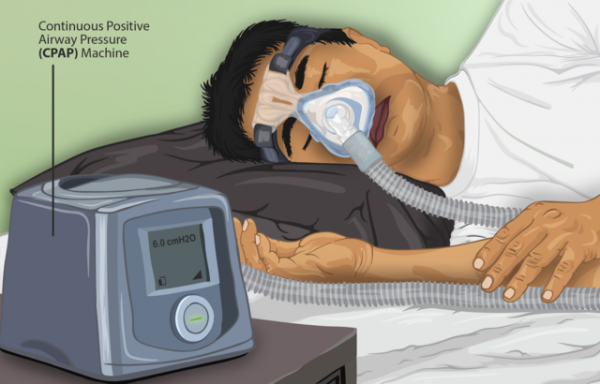Link Between Obstructive Sleep Apnea and Increased Hospitalization From Flu Infection
As the flu season nears, adults who have obstructive sleep apnea may want to be extra careful. Research recently published online as an accepted paper in the Journal of Sleep Medicine is the first to discover that people suffering from sleep apnea and did not use the CPAP treatment were more likely to be hospitalized due to influenza or flu.
Findings of this retrospective study present that 61 percent or 17 of 28 patients who were not prescribed CPAP for their sleep apnea treatment or were not adherent to the said treatment were hospitalized with flu, compared to the 24 percent or six of 25 who were adherent to CPAP treatment.
Statistical analysis showed that patients who were not adherent to CPAP therapy were almost five times more likely to be confined at a hospital with a flu infection, even if they had a higher flu shot rate.
According to study coinvestigator Dr. Glen Greenough, their study "would suggest that among patients who have obstructive sleep apnea, those using CPAP are less likely to be hospitalized from flu infection compared to those who do not use the therapy.
Greenough, who is also a medicine, psychiatry, and neurology associate professor at the Department of Dartmouth-Hitchcock Medical Center in Lebanon, New Hampshire, added that their research provides more evidence that sleep is very vital to health.
ALSO READ: 6 Reasons Why You're Always Feeling Excessively Tired and Sleepy

This is a depiction of a Sleep Apnea patient using a Continuous Positive Airway Pressure or CPAP machine while sleeping.
CPAP Treatment
The study findings, Greenough said, would propose that the use of such a therapy, CPAP, that enhances the quality of sleep decreases the severity of flu infection as determined by hospitalization rate.
Additionally, the results might suggest that treating sleep apnea, thus improving sleep quality, has a beneficial impact on one's immune system, the study coinvestigator explained.
The results also suggest that treating the sleep disorder with CPAP could help lessen hospitalizations, thus, cutting down care costs.
Almost 30 million adults in the United States have obstructive sleep apnea, a lingering illness involving repeated collapse during the upper airway's sleep.
DON'T MISS THIS: 6 Reasons Why You're Gaining Weight Unintentionally
Common Signs to Watch Out
Common warning signs of this sleep disorder include snoring and excessive sleepiness during the daytime. A common therapy for this is CPAP, using mild air pressure levels, provided through a mask, for the throat to stay open during sleep.
The Dartmouth-Hitchcock Medical Center researchers examined the medical records of 53 patients with sleep apnea and a confirmed flu case between 2016 and 2018.
The 28 patients classified as non-adherent to CPAP therapy had a mean age of 63 years, not to mention 54 percent male. Meanwhile, 25 CPAP-adherent patients were said to have a mean age of 60 years and were 53-percent male.
The use of CPAP was examined by data download, which explained as "use of at least four hours each night for at least 70 percent of all nights."
The analysis showed that 75 percent of the non-adherent patients had a flu shot, compared with 56 percent of regular CPAP users.
While not a statistically substantial difference, the study authors propose that poor sleep could have adversely impacted non-adherent patients' responses to the vaccine. The Centers for Disease Control and Prevention said October is an ideal month to get a flu shot.
IN CASE YOU MISSED IT: Is Excessive Exercise Linked to Eating Disorders? Here's What Studies Say
Check out more news and information on Sleeping on MD News Daily.
Oct 20, 2020 11:40 AM EDT





